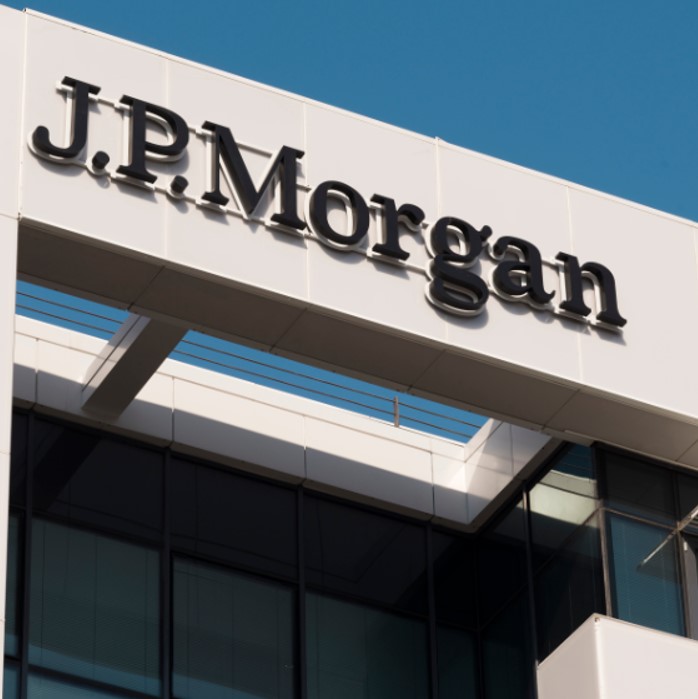Financial Results
Second-Quarter 2025 Net Income Falls At JP Morgan

In a quarter that straddled large shifts in markets because of the gyrations in tariff policy and geopolitics, JP Morgan started the Q2 reporting calendar as is customarily the case.
JP Morgan yesterday reported a drop in net income in the second quarter of 2025 of $14.99 billion from $18.1 billion in the same quarter a year before, with a fall in net revenue over the period affecting the result. Excluding a "significant" item – a $774 million income tax benefit in the corporate business – the net income result was $14.2 billion.
Yesterday, shares in the US banking group ended slightly up, but
were down a touch this morning in after-hours trading, according
to reports.
The US-listed bank started the second quarter reporting season
for banks by reporting that provision for credit losses slipped
to $2.849 billion from $3.05 billion; noninterest costs rose
slightly to $23.8 billion from $23.7 billion.
Stripping out certain one-off effects, noninterest revenue rose 8
per cent, driven by higher asset management fees in assets and
wealth management and consumer and community banking, JP Morgan
said in a statement yesterday.
Investors will scrutinise results of this and other banks to see
how they were affected by the sharp market falls after President
Donald Trump's "Liberation Day" tariff announcement of 2 April
and subsequent market recovery.
Asset and wealth management
Within the AWM business, net income rose to $1.473 billion from
$1.263 billion a year earlier; provision for credit losses rose
to $46 million from $20 million; noninterest costs rose to $3.733
billion from $3.543 billion; net revenue rose 10 per cent
year-on-year.
Assets under management were $4.3 trillion, rising 18 per cent,
and client assets were $6.4 trillion, up 19 per cent. These
increases were each driven by continued net inflows and higher
market levels, it said.
“The US economy remained resilient in the quarter. The
finalisation of tax reform and potential deregulation are
positive for the economic outlook, however, significant risks
persist – including from tariffs and trade uncertainty, worsening
geopolitical conditions, high fiscal deficits and elevated asset
prices,” Jamie Dimon, CEO, said.
At the end of June, JP Morgan said it had a Common Equity Tier 1
ratio – a standard international yardstick of a bank’s shock
absorber capital – of 15 per cent. Dimon said the ratio was “far
in excess” of required levels.
“Earlier this month, we announced that the board intends to
increase our common dividend for the second time this year,
resulting in a 20 per cent cumulative increase compared with the
fourth quarter of 2024. We also repurchased $7 billion of common
stock… In addition, we have an extraordinary amount of liquidity,
with $1.5 trillion of cash and marketable securities,” Dimon
added.